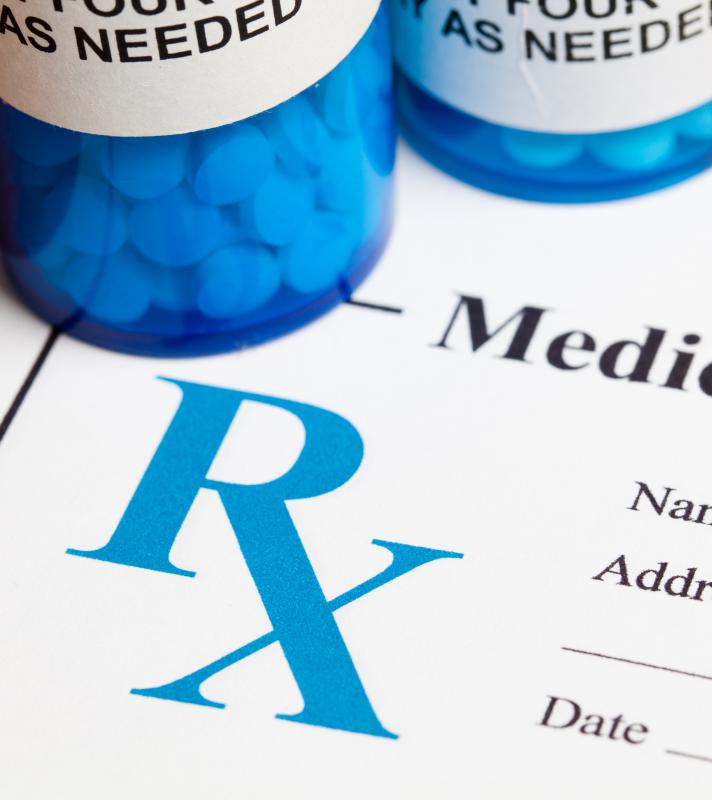At WiseGEEK, we're committed to delivering accurate, trustworthy information. Our expert-authored content is rigorously fact-checked and sourced from credible authorities. Discover how we uphold the highest standards in providing you with reliable knowledge.
What Are the Different Types of Cystic Acne Treatments ?
Cystic acne, also called nodular acne, is a severe type of acne characterized by painful, pus-filled nodules with a diameter of at least 5 millimeters (or about 0.19 inches). Scarring is a common issue with this type of acne, and infection can become an issue if the nodule is squeezed. While other forms of acne can often be treated at home, cystic acne treatments usually need to be prescribed by a medical professional. Treatments include antibiotics to treat underlying infections, cortisone shots to reduce swelling, and retinoid-based solutions to help reduce frequency and severity of breakouts.
Topical antibiotics that are capable of treating inflammatory acne may be effective cystic acne treatments. Oral antibiotics, however, are generally more effective. Both topical and oral antibiotics work by reducing the quantity of Propionibacterium acnes (P. acnes), a bacterium naturally found on the skin that can contribute to acne outbreaks. Dermatologists usually start patients on a high dose of the oral antibiotic and lower the dose as the acne resolves. The medication may be prescribed for up to six months.

Cortisone injected directly into the nodule may be part of cystic acme treatments, especially when the acne does not respond well to topical treatments. Cortisone is a type of steroid, which acts as an anti-inflammatory. In many cases, cystic acne begins healing immediately after the first injection. The shot can be painful, so most dermatologists apply a local numbing agent before the injection. Other side effects include risk of allergic reaction and a white spot (hypopigmentation) at the site of the injection. Hypopigmentation is more common in dark-skinned patients.

Several types of topical retinoid solutions are used to treat cystic acne. Retinoids are derived from vitamin A and work by unclogging pores and preventing the nodules from forming. An extra benefit of using retinoid solutions as cystic acne treatments is their ability to help diminish signs of ages, such as wrinkles. Topical retinoids can drastically increase sun sensitivity, so it is important for patients to use sun protection when going outside. They can also be irritating to the skin.

For women suffering from the condition, oral contraceptives may be effective cystic acne treatments. They work by suppressing the sebaceous gland, an oil-secreting gland in the skin and hair follicles. Overacting glands can produce too much oil, which clogs the pores and causes acne. Oral contraceptives should not be prescribed to women with blood-clotting disorders, those who smoke, or those who are older than 35.

Each of the cystic acne treatments discussed above may be used alone or in conjunction with other treatments. Patients may need to try more than one type of treatment to find the one that works best for their condition. A dermatologist will recommend the best course of action.
AS FEATURED ON:
AS FEATURED ON:















Discussion Comments
Is a skin peel treatment suitable for cystic acne?
I've read great things about chemical peels for acne. Apparently, the technique removes dead skin and allows a fresh skin layer to come up which is acne and scar free. It sounds great but I'm wondering if it can be used for all acne types. Has anyone here used this treatment for cystic acne? Do I need to wait for my acne spots to be gone to have it done? Or can I go for it while I have an ongoing breakout?
@SarahGen-- I'm using doxycycline antibiotic as an adult cystic acne treatment and yes it's working. Sometimes it gives me an upset stomach, but only if I don't eat well beforehand. I also have to avoid dairy products for several hours before and after my dose. Dairy reduces the medication's effectiveness. I do recommend this treatment.
The only worry I have about it is that I can only take the antibiotics for so long. I'm worried that my acne will worsen after I stop taking the medication. My doctor has assured me though that I can keep things under control after antibiotic treatment with topical treatments. I hope that will be the case.
I'm still happy that antibiotics worked for me though. Nothing else had worked for my cystic acne until now.
Is anyone here on antibiotic treatment for cystic acne? Is it working for you? Are there side effects?
Post your comments